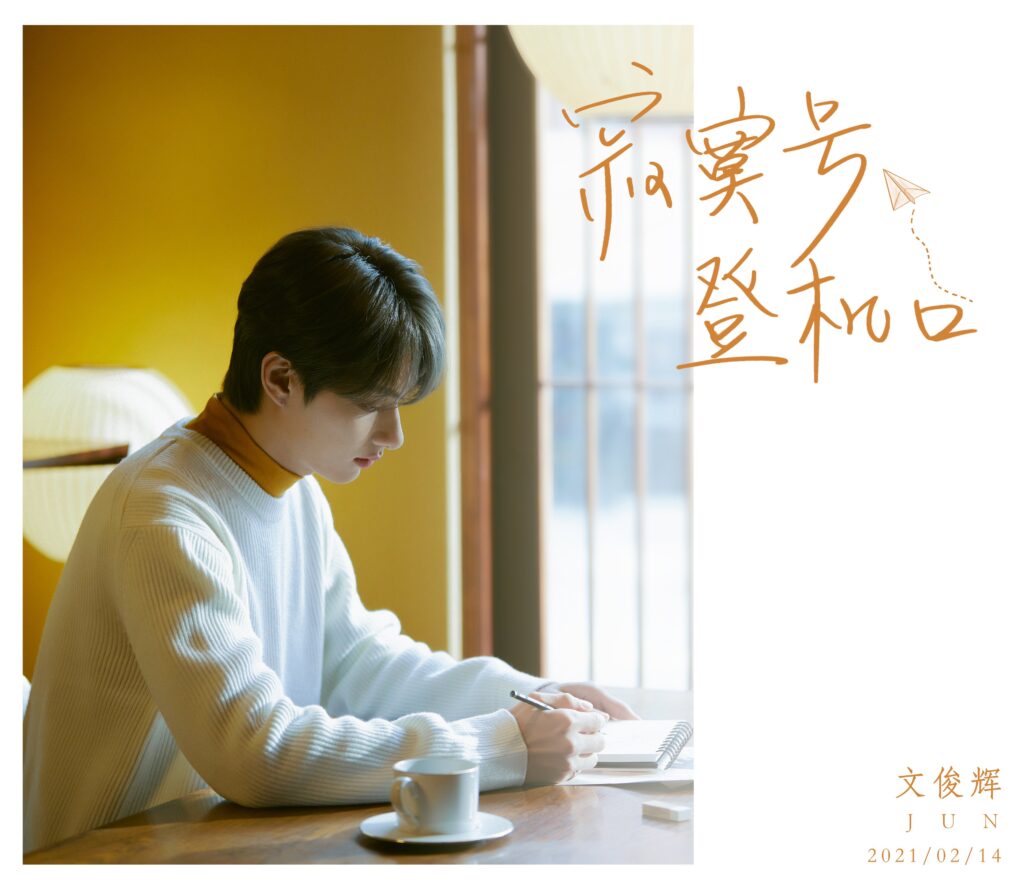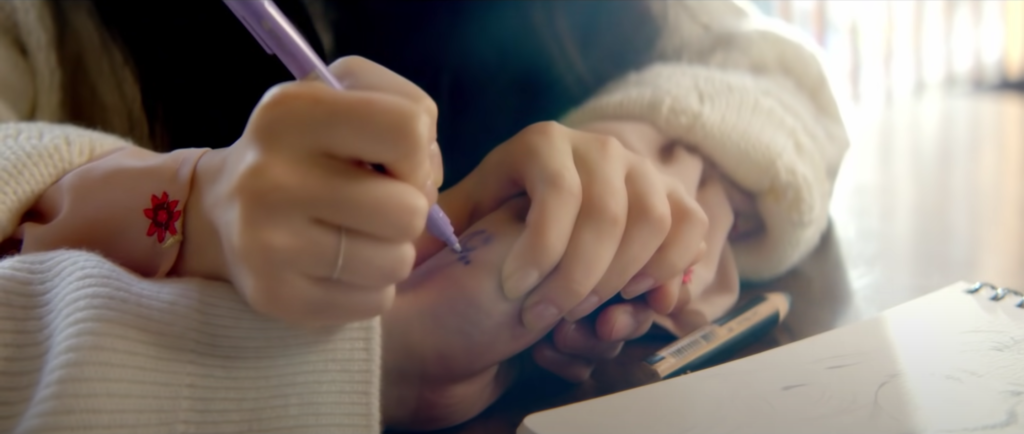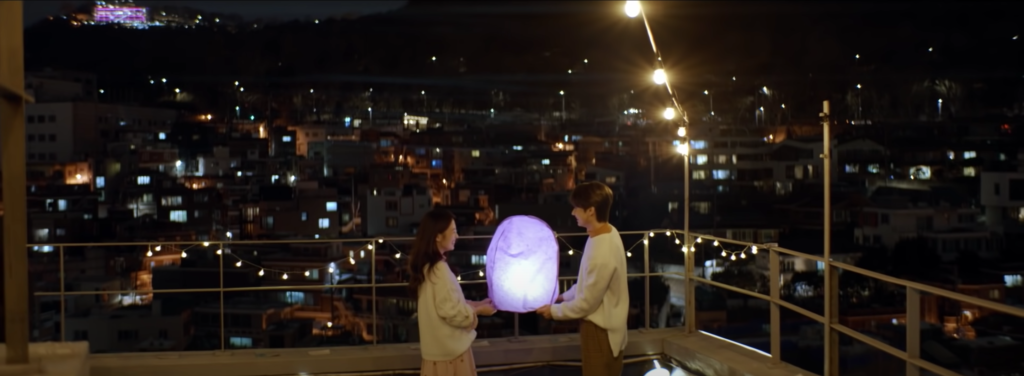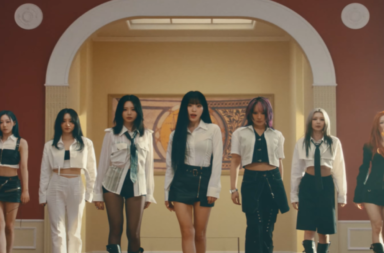
If you want camaraderie, a group chock full of talent and, of course, chaos, look no further than Seventeen. While each of the 13 members stand out in their own ways, with his mischievous—albeit kind of quirky—sense of humor, dancer Jun possesses the inexplicable ability to make both you and the members of Seventeen burst out laughing, no matter what he does.
Remember his “1+1” idea for Going Seventeen, the group’s reality show? His presentation resulted in his audience enthusiastically chanting “one plus one” in anonymous support of his proposal. And although not quite as loud as “1+1,” Jun’s carrot costume from his “One Fine Day in Japan” adventures with Woozi was definitely an amusing fashion choice for delivering gifts to some of the other members. We also cannot forget the poor guy’s confusion when he accidentally got pulled into bowing with NCT Dream by Renjun. For a moment, Jun crossed company lines and became an honorary Dreamie.
Silent Boarding Gate, the artist’s first single album as a soloist and sung in Mandarin (Jun goes by his Chinese name 文俊辉), demonstrates a new side of him—one characterized by romance, heart-tugging emotion, and themes of loneliness, fitting choices considering the tracks were released on Valentine’s Day. In the MV of “Silent Boarding Gate,” Jun is often stuck inside of his memories, hands in pockets, eyes downcast, and walking among the landscape alone. His pensive gazes directly strike viewers, the close-ups tinged with sadness.
The classic ballad opens with a simple acoustic guitar, giving the single an airiness that deeply contrasts with the heaviness of Jun singing about a love that was never meant to be. As the song progresses, more instruments are layered on as the music ebbs-and-flows. The motion of these elements create a resonant ballad as they increase in volume and then fade away, one that subtly brings listeners’ attention to something new with each listen.
Supported by this musical foundation, the lyrics build a vivid story with its central metaphor of a boarding gate. Though thinking about getting on a plane during Covid-19 would probably make most of us uncomfortable, Jun transforms this very ordinary part of travel into a route to deeper emotions. Boarding gates are transitions, where someone can either arrive or depart from a place. It is there to welcome you or bid you goodbye, yet, at the same time, you have not quite reached your destination as you pass through this gate.

“Silent Boarding Gate,” particularly its MV, is also suspended between two points. On one hand, the track itself is soft, simple, and romantic, a notable difference from what Seventeen as a group and the performance unit usually produce. On the other side, however, underneath this quietness there is a sadness that their relationship no longer exists. In fact, the first time “silent boarding gate” is sung in the MV, the camera cuts to a shot of Jun looking over at the woman he was waiting for seated next to him in the café. It is only him in the frame, isolated from the person who makes him smile.
This distance between Jun and his lover is further hinted at through the use of the moon and stars. In the same café sequence, once the woman surprises Jun with her sudden appearance as he was concentrating on his drawing, she soon afterwards draws a moon and three stars on the back of his hand in purple ink. The crescent moon appears in the opening shot of the MV, and it is curious to think about how the moon and the stars are in the same sky but never actually make contact.

The same happens with the images on Jun’s hand: she drew the moon and the stars close enough to seem like they are almost touching, but that connection is never realized. There was always the potential of meeting—which was actualized between Jun and the woman for a moment—but their boarding gates have different destinations.
The first verse of “Silent Boarding Gate” immediately establishes that time is not with this couple. Their separation is inevitable: “You are the past, I am the future.” The MV warps time and memory by visiting and re-visiting Jun’s memories as they were in the past and as he takes in the vast landscapes in the present. His lover enters and exits the scenes at will, joining him, but by the end of the MV, Jun is alone in all of them.
Two other lyrics especially add to this bittersweet story of being together but knowing it will not last. The first chorus clearly voices that “Our timelines are not connected,” while “Our timelines will always be parallel” from the second chorus strikes the final chord in their relationship. This is expressed visually through the MV as well. The majority of the time, the couple are parallel to each other.

They look at each other as they are seconds from releasing their lantern suspended between them into the night sky. Their bodies cut across the floor as the camera captures them imagining beyond the confines of the four walls from a birds eye view, and they sit face-to-face as they make each other laugh when they play with the fuzzy grasses in the field (she creates new eyebrows for herself, while he suddenly appears to have a mustache).
There is the rare moment when two are perpendicular (such as the scene in the café) and another time when they make physical contact. This sequence on the boardwalk, however, seems like Jun is there to support her as she risks walking on the elevated planks, steadying her when she almost falls. There is a tangible connection in order to help her fly towards her dreams just as much as he wants to fly towards his. Regardless of knowing that their “timelines are not connected,” Jun could not come away unscathed. “How long will it take until I’ll finally be able to say, ‘I’m okay?’” are the final words he sings.

“Crow,” the pre-release for Silent Boarding Gate, also stands out for its beautifully poignant lyrics. Like “Silent Boarding Gate,” the second track ties itself together through a central image that captures an expanse of emotion. Jun sings of crows, becoming one himself, as he longs to be loved and longs to be seen as more than others’ perception of him. It is a tried cry, and by the end he softly pleads, “Give me a chance to prove that I’m also beautiful.”
The piano ballad is nothing new in the vast ballad landscape, but, all the same, the song pulls you in. The soothing instrumental contrasts with the loneliness and pain that is palatable in Jun’s voice and his interpretation of the lyrics. By releasing ballads as his solo debut, Jun shows what he can do vocally separate from his main position in Seventeen’s performance unit. It is the lyrics and Jun’s emotional delivery of Silent Boarding Gate that truly draw listeners back to hear his voice one more time.
(YouTube. Lyrics via Twitter [1] [2]. Images via Pledis Entertainment.)


